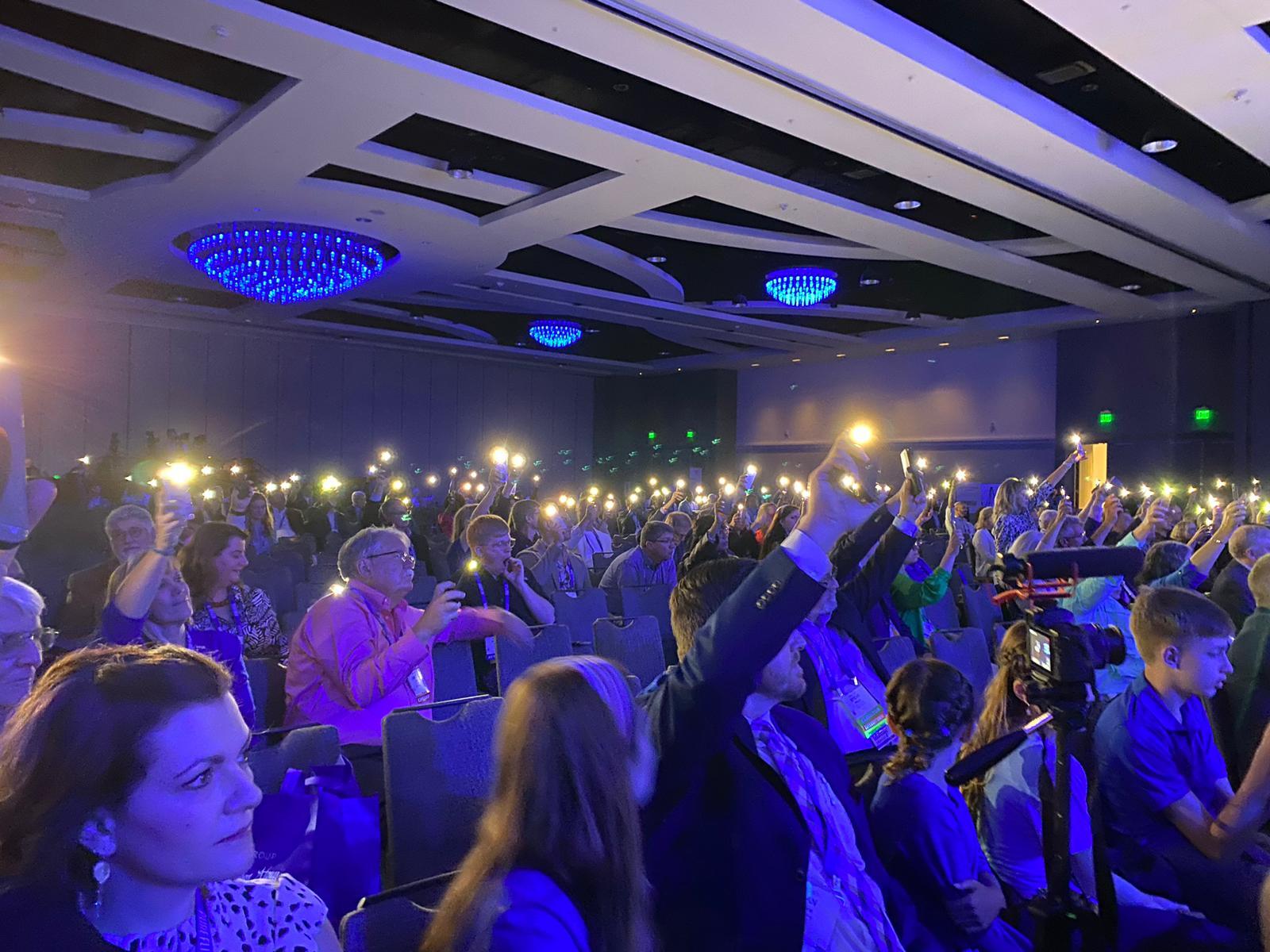Evangelicals, Israel, and the Battle for Hearts: Lessons from Grapevine, Texas.
I recently attended the NRB 2025 International Christian Media Convention in Grapevine, Texas. The annual conference is the largest gathering in the world of Christian media outlets and those who work with them. It was the first time I attended and I was quite surprised to see such a robust presence of Israelis and Israeli organizations at such a profoundly focused Christian gathering.
The fact is that over the past decade, a significant number of Jewish activists and policymakers have intentionally engaged with the American evangelical community, an effort that aligns with the perspective of former Israeli Ambassador to the U.S., Ron Dermer. “People have to understand that the backbone of Israel’s support in the United States is the evangelical Christians,” Dermer noted in 2021. And while evangelicals constitute a substantial portion of the U.S. population, American Jews, Dermer noted, include some of Israel’s most vocal critics.
A Surge in Media Coverage of Israel
In the past five years, Christian media outlets have significantly increased their coverage of Israel. This is likely due to four key geopolitical events which reinforced the centrality of Israel within Christian discourse. First and foremost was the 2020 signing of the Abraham Accords. Several Christian media outlets considered the agreement to have prophetic significance for the Middle East and thus was given extensive coverage. Next came the 2021 Israel-Gaza Conflict, a mini-war that lasted a total of eleven days. Though brief, evangelical networks like CBN (Christian Broadcasting Network) and TBN (Trinity Broadcasting Network) provided extensive coverage of the conflict, often framing the battle in biblical terms.
It was Christian media which strongly condemned the October 7 Hamas attack on Israel, and many outlets increased their focus on Israeli security and Jewish-Christian relations.
On the practical side, the post-COVID years saw a resurgence in Christian visitors to Israel. Once travel restrictions were lifted, Christian networks ran stories covering the return of pilgrimages to Israel. These stories reinforced both spiritual and historical ties to the land. Last year’s statistics speak to that resurgence. According to Israel’s Ministry of Tourism, about 40 percent of the 1.96 million tourists in 2024 were Jews, while nearly all the rest were Christian. Of that group, an estimated 45 percent were religiously motivated to visit Israel.
One more factor can account for the media surge. It is known that older evangelicals remain staunchly pro-Israel. However, younger Christians are expressing more nuanced and sometimes critical views, prompting Christian media to address these generational shifts.
Judea and Samaria: Diverging views and Biblical literacy
As a resident of Judea and Samaria, I was struck by the notable divergence of opinion between evangelical Christians and liberal Jewish communities regarding Israel’s presence in Judea and Samaria (the West Bank). Many liberal Jews still advocate for a two-state solution while expressing concerns over settlements.
Conversely, evangelical Christians often support Israel’s claims based on a biblical narrative and view Jewish sovereignty as a fulfillment of prophecy. As a resident of Judea and Samaria, I can attest to the fact that it is this perspective that fosters a culture of strength and assertiveness rather than one of appeasement and weakness.
And it is precisely because of their biblical literacy that evangelical Christians support Israel. This is something we share: reaffirming the historical and spiritual connection of the Jewish people to the land of Israel. This renewed emphasis on biblical foundations strengthens their advocacy for Jewish sovereignty in regions like Judea and Samaria.
We are grateful for the robust support, but we must never be complacent. For example, a 2021 survey revealed that support for Israel among young evangelicals dropped dramatically: from 75% to 34% in 2018. Therefore Israel may need to adapt its approach, as attitudes within this important group continue to change.
So what did I learn? After several days at the convention, I came to see that the stronger Jewish presence at NRB 2025 wasn’t just coincidental – it was a strategic effort to strengthen ties with the evangelical community. While our alliance is built on shared values and mutual interests, it also faces real challenges that require honest conversation. My hope is that through this ongoing dialogue, we can not only maintain but expand support for Israel across America’s diverse communities. As a resident of Judea and Samaria, I returned home with both renewed hope and a clearer understanding of the work ahead of us all.
Natalie Sopinsky is the International Spokesperson for Hatzalah Yehuda and Shomron, an Israeli volunteer organization of medics, paramedics and doctors operating throughout Israel but concentrating in Judea and Samaria, the Old City of Jerusalem, and the periphery of Jerusalem.





